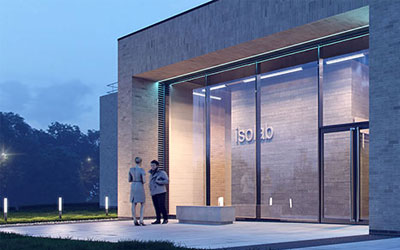Surfaces & Coatings
What is a coating?
A coating is a substance applied to a material or a product to enhance the material/product overall properties, such as water wettability, solvent resistance, gas or solvent permeability adhesion, and/or resistance to wear without affecting bulk properties. It can be decorative, protective and – in the case of smart materials – add functionality to the product, i.e. switch properties under external control.
How are coatings used?
Coatings have a broad range of uses, including:
- To change the touch/feel of a material
- To change gas and solvent permeability of material e.g. to protect gas/moisture sensitive materials
- To improve adhesive bonding
- To improve wettability and printability of water hating materials
- To make ‘splash proof’ or waterproof
- To prevent staining of materials
- To make self-cleaning
- To improve biocompatibility (implants/ex vivo devices)
- To impart anti-microbial and anti-viral touch- properties
Functional coatings represent a multi-billion pound industry within the UK and are applied to products as diverse as contact lenses and drinks cartons; they are found in automotive products, textiles, polymer/plastic films, construction materials, and products and processes affected by biofilms, e.g. pipes and medical implants

Want to improve the functionality of your product?
Want to make products more efficient, resilient, greener, longer lasting or more cost-effective?
GISMO can help you to:
- Develop and optimise coatings that use thin-film polymerisation and deposition techniques, including plasma polymerisation, thin film molecular growth, Langmuir-Blodgett, spin coating and UHV single crystal sputter/annealing
- Engineer surface features with sub-µm precision, using laser sintering, milling and machining and additive manufacturing
- Characterise and image surfaces and their contaminants using chemical analysis and microscopy, and morphological, mechanical, thermal, electrical, and fluidic techniques
- Undertake proof of concept studies and develop prototypes to demonstrate the feasibility of new and innovative ideas
- Trial processes to inform decisions about large-scale production
World-class facilities
Within the Department of Physics, the Quantum Technology Centre and clean room offer state-of-the-art facilities for nanoscale device fabrication and characterisation. Our Ultra-Low Temperature labs allow us to cool materials to some of the lowest temperatures ever recorded on Earth. Our recently opened IsoLab is one of the quietest measurement environments in the world.
Take a virtual tour of our cutting-edge IsoLab pods and have a look inside!


Our expertise is backed by comprehensive in-house materials engineering development, test and computational modelling facilities for hard engineering materials and soft biomaterials.
We can manipulate materials over a large range of length scales from nanometres (e.g. small organic molecules) to metres (e.g. composites materials for buildings).
Contact us now to discuss your needs and let our experts help you to determine how to satisfy them.
If you just want to put your materials, products and processes to the test, they will carry out a free diagnostic to assess them.
Meet the experts
GISMO is part funded by the European Regional Development Fund.

© 2022 Lancaster University
Lancaster University Home Page | Accessibility Statement | Legal Notice | Freedom of Information | Privacy and Cookies Notices







